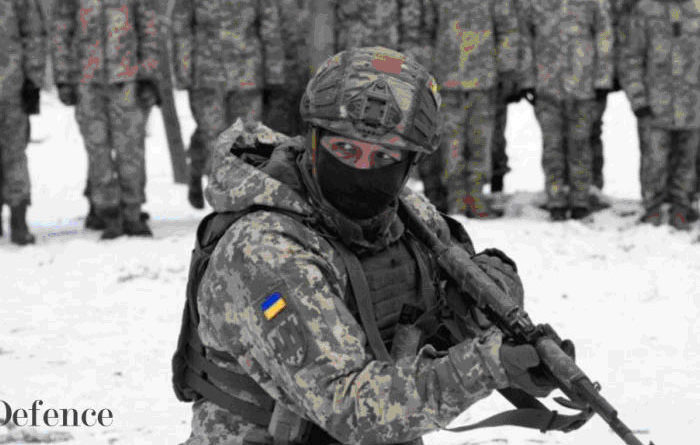A Storm Is Brewing In Kiev For New Delhi; India Must Prepare For Impact Of Military Conflict In Ukraine
25 January 2022
A storm is brewing in Kiev for New Delhi; India must prepare for impact of military conflict in Ukraine
Vice Admiral Kay-Achim Schonbach may have had to resign as German Navy chief for his comments in India about being more accommodating to Vladimir Putin over the Ukraine standoff. But the flaws he identified lie at the heart of the strategic conundrum that illuminates a potentially volatile situation that may have serious implications for India – essentially, the future of the Russia-China nexus.
Schonbach assessed in what has now been called “misguided” comments by his administration that the West needs Russia in its broader effort to contain China. Now, even if Berlin rejects this, the truth is that Moscow’s aggressive move on Ukraine was based on the premise that now was the best time to negotiate with the West, given its strategic preoccupation with countering China.
This is no ordinary deal, but a very big deal from Putin, where it now looks like he is ready to exercise the military option if a deal is not struck. In other words, force a hard bargain.
New Delhi will undoubtedly feel the impact of any impending military action. Russia has amassed nearly 60 battalions, or more than 100,000 troops on the Ukrainian border. The United States ordered the evacuation of dependents of diplomatic personnel, London published a list of the few elected Russians who would lead the government in Kiev and NATO was authorized to transfer military equipment to Ukraine. Thus, the likelihood of military action is perhaps highest at present.
What does this mean for India? First, any military conflict will result in sanctions against Russia. This, in turn, will prompt Moscow to cut off gas supplies to Europe and drive up oil prices. The Donbass region in Ukraine, the main powder keg with Russia, holds the largest reserve. Moscow will most likely set up an oil and gas swap with Beijing in case the conflict progresses.
An oil shock at this stage, when the economy is about to recover, could prove debilitating for India. New Delhi will have to build options with Russia, which would entail the risk of sanctions – a dilemma that India does not want.
Then, the consequences that such an action will have on China. Would military action against Ukraine trigger US preemptive action on Taiwan, assuming a Russia-China link is at stake? On Monday, China flew some 39 fighters into Taiwanese airspace, signaling the ominous intent of US and Japanese warships in the region. Essentially, Russian military action in Ukraine could impact — perhaps reduce — Washington’s options on Taiwan. Because the United States will not want to lose its military preeminence in Taiwan, where it is legally bound to protect Taiwanese territory.
In some ways, the gaze on Taiwan could divert Beijing’s attention from the border standoff with India. But he is unlikely to change his overall approach or his military posture. The biggest concern, in fact, would be that India would balance out Russia in a situation where its dependencies on China would have multiplied. India will have to take into account the impact all this could have on Russian military supplies. The other balance he will have to maintain is with the United States, which would be clearly indicted against both Russia and China. Obviously, as Schonbach also pointed out, there are also other powers that don’t want to be caught in this dilemma.
Washington is by far New Delhi’s most important strategic partner. The Indo-American dynamic is at the heart of its strategy to counter China, create options in the Indo-Pacific and, more importantly, create supply chain alternatives that could both secure and benefit the Indian economy. Unlike Donald Trump’s presidency, the Joe Biden administration will be more aggressive toward Russia given the Democratic Party’s stance on Russia’s role in US domestic politics.
In many ways, the standoff with Russia could give Biden political momentum after all the criticism his office has received over Afghanistan. It is entirely possible that the US wants India to recalibrate its stance on Russia. That said, the US is unlikely to push the envelope beyond a certain point, given how central India is to its Indo-Pacific strategy. Yet New Delhi will have to prepare for tough calls, tricky diplomacy and tough negotiations.
At best, India will manage the balance. But would that be enough given China’s aggressive stance on India? The way forward for the United States may well be to map out a course of action against Russia and China. Needless to say, this will present a tough choice for India.
Therefore, in sum, a military conflict in Ukraine is undoubtedly strategically undesirable for India. What’s worse is that there is little New Delhi can do to influence the course of events. That’s why he has to brace for impact. Right now, behind-the-scenes diplomacy is at stake and, perhaps, the only chance to avoid conflict. India must be responsive and agile so as not to be caught off guard.
Courtesy: India on 24

